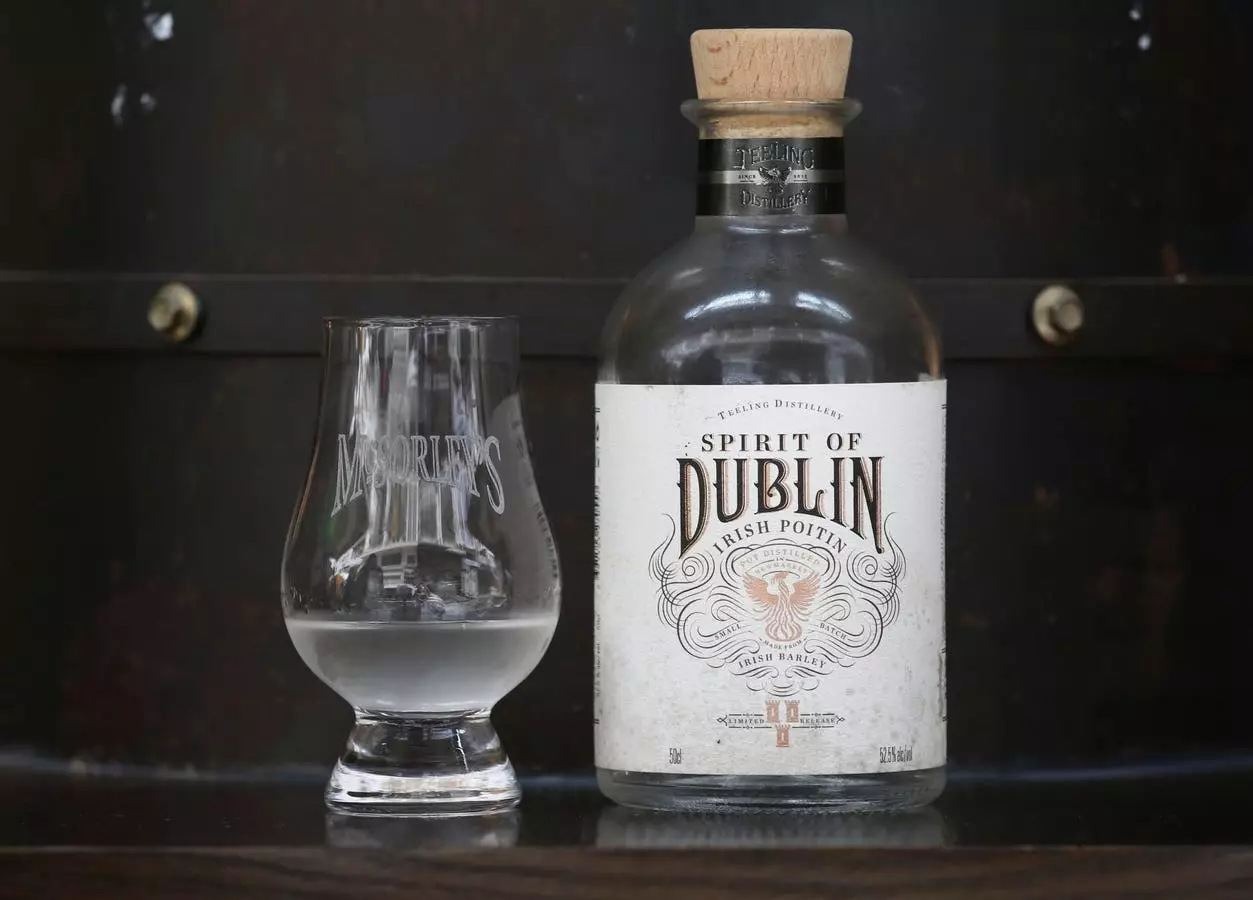For centuries, poitín, the traditional Irish moonshine, languished in the shadows of famous brands like Guinness and renowned spirits such as Irish whiskey. However, this lesser-known beverage is currently enjoying a notable revival, reclaiming its rightful place in Irish culture and providing enthusiasts with an authentic taste of history. Deeply interwoven into Ireland’s socio-cultural fabric, poitín isn’t merely a drink—it’s a story, a tradition, and a testament to the resilient spirit of the Irish people.
Poitín, deriving its name from the Gaelic word meaning “little pot,” was distilled in pot stills across the countryside, often in clandestinely operated stills in farmhouses and kitchens. Historically, it was made from malted barley but had a broad spectrum of variations, where adventurous distillers would incorporate ingredients like crab apples, sugar beets, and various grains. Each distillation yielded a unique product, with taste qualities reflecting the region, time of year, and specific recipes utilized by different producers. This variability resulted in a product that, although often rough around the edges, occasionally produced batches of remarkable smoothness that beckoned to be shared among friends and family.
The history of poitín took a significant turn in the 17th century when British authorities, wary of the lost tax revenue from its unregulated production, outlawed its distillation. This ban forced poitín underground, turning it into a symbol of defiance and an emblem of the Irish rebellion against English oppression. The rebellious act of brewing moonshine in hidden locations became a cherished practice among rural communities, showcasing the independent spirit of the Irish populace. From the dusty backroads to the vibrant gatherings, poitín remained an integral part of social interactions and cultural rituals.
Despite the ban being lifted in 1997, poitín’s path to mainstream acceptance has been rocky. Mistruths about its potency hindered its perception; many believed that indulging in this illicit liquor could lead to disastrous consequences—ranging from blindness to reckless debauchery. For two long decades post-legalization, poitín remained largely obscure, shunned by many who had no first-hand experience of this traditional spirit.
In the 21st century, the narrative surrounding poitín has transformed significantly. The emergence of craft distilleries across Ireland has catalyzed a renaissance for this once-banned spirit. Today, more distilleries are embracing poitín, positioning it as a premium offering in bars and restaurants, with a growing number of knowledgeable bartenders incorporating it into innovative cocktails. This newfound enthusiasm for poitín is indicative of a larger trend—Ireland is rediscovering its roots and reclaiming its history through local flavors.
Contemporary brands such as Mad March Hare Poitín, Bán Poitín, and Glendalough Mountain Strength Poitín are making waves in both local and international spirits markets. These brands are not just reviving a product; they are fostering appreciation for an integral piece of Irish heritage. Poitín has not only made a comeback; it is now a featured ingredient in cocktail menus thanks to innovative bartenders eager to craft unique drinks that celebrate the spirit’s authenticity and complexity.
Visitors to Ireland today have ample opportunities to experience poitín firsthand, whether in the form of cocktails or distilled spirits. One must-visit spot includes Bar1661, aptly named for the year poitín was outlawed, which has been pioneering the modern consumption of this spirit with a creative cocktail menu. For those wishing to savor something distinct, try the Belfast Coffee, an inventive take on the classic Irish Coffee, using a base of Bán Poitín combined with rich cold brew coffee and delicate cream.
Another hidden gem is the Micil Distillery in Galway, where guests can learn about the family’s rich history alongside poitín’s heritage. Distillery tours usher patrons through an exploration of distillation practices, concluding with samplings of their contemporary offerings.
As poitín continues its ascent into the contemporary spirit scene, the question remains: what does the future hold for this storied beverage? The answer, while uncharted, seems promising. Bartenders and distillers alike are committed to fostering a deeper understanding of this cherished drink, encouraging consumers to appreciate its nuanced character. While poitín may have been lost, it has been rediscovered, and this intrepid spirit is undoubtedly here to stay, awaiting the eager palates of both newcomers and seasoned connoisseurs.

